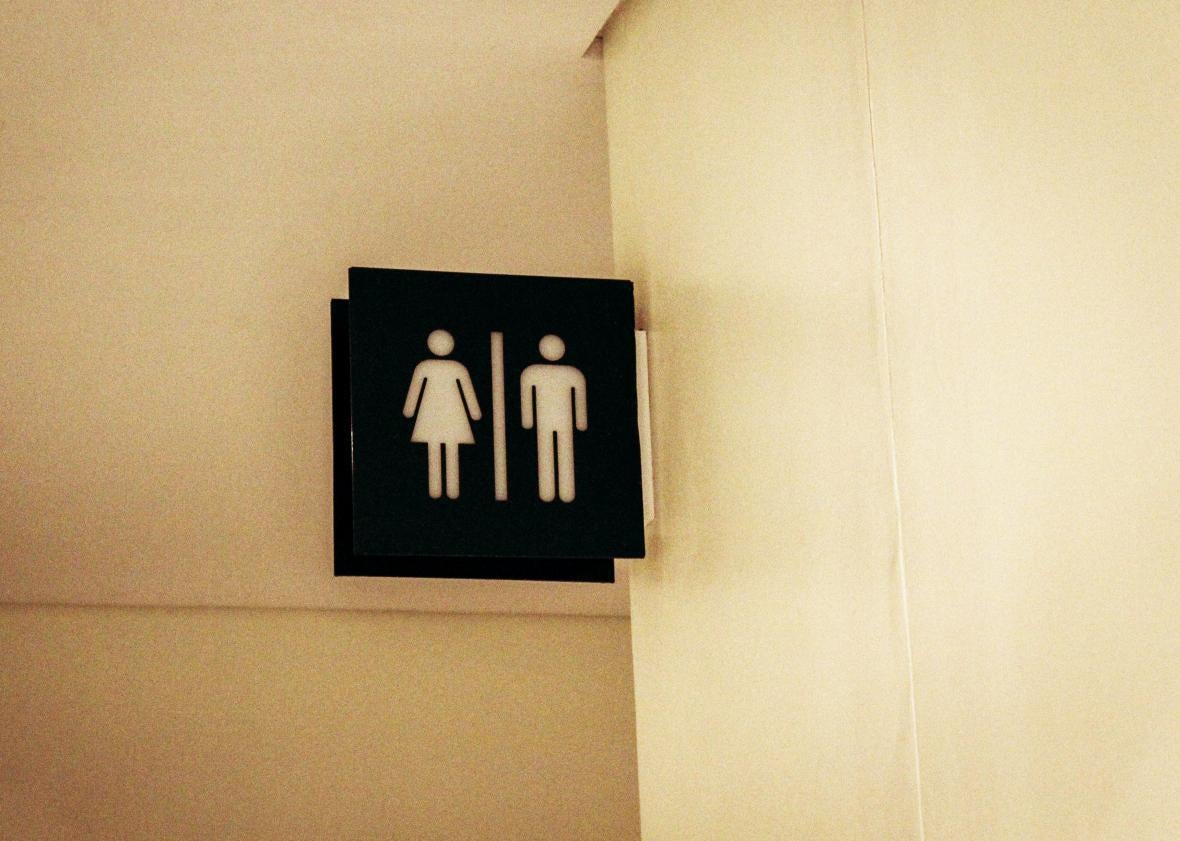As state legislatures reconvene for 2016, a rash of bills have been proposed that would exclude transgender people from using the restrooms that align with their gender identity and outward gender expression. In other words, the bills seek to prevent a transgender woman—who looks and presents as a woman—from using the women’s restroom. Instead, she would be forced to use a men’s restroom where she would stand out like a sore thumb. These “papers to pee” or “genital check” bills violate constitutional privacy protections.
For example, in Washington state, a bill has been introduced that would empower public and private entities to bar transgender people from gender-segregated restrooms if the individual had not undergone gender confirmation surgery (sometimes referred to as genital reassignment surgery). In South Dakota, a bill recently passed by the House of Representatives would prevent a student whose chromosomes and anatomy as identified at birth did not align with a gender-segregated restroom from using that restroom in a public school.
And in Virginia, a bill would impose a fine on any student who did not use the bathroom corresponding to the sex listed on their birth certificate. (Luckily, it appears as if this particular bill was defeated in committee on Tuesday). Currently in Virginia, the gender marker on a birth certificate will only be amended if an individual undergoes a medical procedure.
If passed and enforced, these bills would violate an individual’s constitutional right to informational privacy. As I detailed in “Outing Privacy,” an article in the Northwestern University Law Review, the Due Process Clause of the U.S. Constitution prevents the government from disclosing individuals’ intimate, sensitive information—including someone’s LGBTQ identity. This is particularly so if the information is likely to subject the individual to discrimination, harassment, or violence, as is tragically the case for many transgender individuals.
Several federal courts have unambiguously recognized that there are constitutional limits on the government’s ability to disclose one’s queer status. For example, in the case of Powell v. Shriver, the 2nd Circuit Court of Appeals held that “[t]he excruciatingly private and intimate nature of transsexualism, for persons who wish to preserve privacy in the matter, is really beyond debate.” And the 3rd Circuit has concluded that “[i]t is difficult to imagine a more private matter than one’s sexuality and a less likely probability that the government would have a legitimate interest in disclosure of sexual identity. … [S]exual orientation [is] an intimate aspect of [one’s] personality entitled to privacy protection.”
Even the Supreme Court, while not specifically addressing the issue of gender identity privacy, has acknowledged the existence of a constitutional right to limit disclosure of personal information. And in Obergefell v. Hodges, where the court overturned state bans on same-sex marriage, the Supreme Court exclaimed that the liberty guaranteed by the Constitution includes the individual right “to define and express their identity.”
As such, proposed bills that seek to bar, punish, or fine individuals who use restrooms corresponding to their gender identity—but not corresponding to certain discrete aspects of their anatomy—unconstitutionally publicly out and disseminate intimate information regarding transgender individuals. These laws out transgender individuals in both subtle and direct ways
If to be enforced the bills require individuals to somehow prove that their so-called “biological sex” matches the gender of the bathroom, they will be forced to disclose sensitive information about their sex and medical history. Indeed, all people—not just transgender people—could ostensibly be asked to prove their “biological sex” before using a restroom, meaning that the invasive privacy violation is not only a transgender problem. A law that implicitly or explicitly includes any such inspection regime is plainly unconstitutional.
More subtly, even a policy without a rigorous enforcement mechanism that nevertheless requires people to use the restrooms corresponding to their sex assigned at birth or genital anatomy outs transgender individuals because their appearance will often not comport with the sex they were assigned at birth. So, if a transgender man uses the women’s restroom, it may become obvious that he is transgender or gender-nonconforming.
Courts have begun to recognize that such indirect outing of trans people violates a constitutional right to privacy. For example, a court in Alaska held that the DMV’s failure to have a policy permitting transgender people to change the gender marker on their driver’s license violated the state constitution because a transgender person was outed every time they presented an ID that did not comport with their gender expression. In November, a federal court in Michigan reached a similar decision, concluding that Michigan’s restrictive policy for changing the gender marker on a driver’s license indirectly outed trans people.
Not only are trans individuals “outed” by such laws, potentially subjecting them to harassment and abuse; these bills are likely to cause more of a disturbance to others using the restroom because trans people will now be forced to use bathrooms that do not match their outward appearance. Moreover, even if a person were relegated to a single-stall, “unisex” bathroom by such bills, they would still be outed and made conspicuous by their repeated avoidance of a shared public restroom.
Courts have already established that the government may not publicly disseminate sensitive, intimate information absent a compelling government interest. The bills being considered by state legislatures flatly violate this constitutional norm by outing transgender people every time they attempt to use the restroom. Lawmakers should reject these bills and permit everyone the ability to pee in peace.
